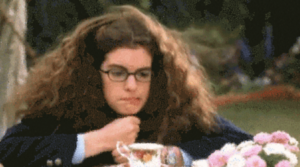-- First of all, sorry for all this time without video!!! I really apologize, I had a lot of work to do, but I'm back on Youtube 🙂 In this video, I tell you about the marriage proposal of Mathieu, my fiancé. It's a good opportunity to see the vocabulary concerning this theme.
Transcript of the video
Hello everyone, I hope you're well. It's been a long, long time since I've had a video.
First of all, I'd like to apologize to you, I actually have a job alongside this YouTube channel and I've had a lot of work to do.
I haven't had time to make any new videos at all, but the good news is that I've quit this job and so now I'll have a lot more time to devote to this YouTube channel.
And here we go again, with at least one video a week. But I think there'll be even more. I've got lots of new formats to offer you. I think I'm going to do live videos too. I'm going to make shorter videos with a single phrase. I'm also going to offer you the chance to play games together.
So here we go again for this channel. Many of you have written to me asking if I'm stopping the channel.
Not at all. Now I'll really have more time, so here we go again.
Today, I'm going to talk about a theme that's very close to my heart. It's an opportunity to learn some new vocabulary on this theme, but also to learn more about the culture in France.
So today's big news is that the channel is starting up again. I'm going to start making videos on the channel again, but more importantly... I'm getting married.
So, here we are, today we're going to talk about this wedding theme. I'm going to divide the video into several parts, so first, I'm going to explain the proposal.
After that, we'll talk about the preparations for the wedding and finally the D-day of the wedding. I will try to put some vocabulary in the video.
This will help you to see the important words to remember on this theme. As usual, there are also French subtitles to help you understand the video better, so don't hesitate to activate them.
It helps you both to understand the video better, but also to better remember all the new expressions we're going to see together today. I hope you've settled in and we're off.
I think I've already told you about Mathieu, my partner, my lover... because he helps me a lot to make this YouTube channel.
He helps me a lot with the videos. You've never seen him because he doesn't appear on screen yet, but maybe soon we'll be making videos together.
But he helps me a lot on the channel. Last June, he asked me to marry him. We were on vacation in Lanzarote. It's an island in the Canaries, and I'll put up a little map so you can see where it is, and he surprised me. We were out hiking. Lanzarote is an island with a lot of volcanoes. It's a real setting, volcanic landscapes.
It's a bit like being on Mars. I'm going to show you some pictures so you can see what it's like if you don't know what it's like. And during a hike, so, it was really beautiful, we were going up a volcano and around the volcano, there were vines. Vines are... they're grapes that you grow to make wine.
It's beautiful. We were climbing up. There were the vines and also well it's an island, so it's surrounded by water, so you could see the sea, so it was very beautiful and above the volcano, he opened his bag and took out an engagement ring in a little box. So, this ring and he asked me to marry him.
Of course, I said yes and... well, we ended up engaged. So, we say "fiancé" for a boy and "fiancée" for a woman. So that's what we call each other before we get married.
When you're between the period when you're engaged, when you've proposed and when you're married. Once you're married, you're husband and wife or époux and épouse. So, for the time being, we're engaged. Once we got back to France, it was time to start the preparations. So let's move on to part 2 of the video. When we got back, of course, the first thing we did was tell our families and friends the good news.
Everyone was very happy and then we started the wedding preparations. So that's the hardest part, the most complicated part. I don't know if you're married or getting married soon, but if you are, you must know what I'm talking about. The first thing we did was to start looking for a venue to hold the wedding reception, i.e. the wedding party. We wanted to get married in the South of France because Mathieu is from the Marseille area, Aix-en-Provence.
So it was very important to us to get married in this region. What's more, it's very beautiful. There are lavender fields and the sun shines all the time. It's a really beautiful region to get married in. I really wanted to get married outside, in a garden. So we started looking for a place with a beautiful garden where we could have the ceremony and the party. We started by looking around.
Once we'd found the place we liked. As I was saying, we wanted to get married in a garden, but then, there are lots of places to get married. You can get married in a château, but you can't get married in a village hall, so they're often... places that belong to the town. Where we can, we can organize parties. So there you have it, everyone gets married in the setting they like.
If you're married, don't hesitate to tell me in the comments where you got married. How did it go? And above all, it's a good exercise in vocabulary. It's a way of using the vocabulary we're going to see in this video. So don't hesitate to tell me about your wedding in the comments.
So, once the venue was set, the second very important thing to find was a caterer. So the caterer is the person, or at least the company, that's going to organize the entire wedding meal.
So, in France, food is very important, so it's very important to choose the right caterer. We've already found that. We're in the middle of the preparations, so we're taking things one step at a time. We've also already found the DJ. So, the DJ is the person who's going to set the music at the wedding, who's going to create the mood of the wedding, the festive atmosphere. Then, what do we have to do...
What else do you need for a wedding? A photographer. If we want to take pictures of the party. We've also found a videographer. This is the person who's going to make a video. Not every wedding has a videographer. There's not necessarily someone who does the video. We wanted someone to make videos so that we could keep a souvenir of the day, where it's a little more dynamic, you can see the movement, you can see more of the atmosphere than in the photos.
So it was very important to us.
It's also important to find a hairdresser during the preparations. If you feel like it for the big day. A make-up artist, the person who's going to do the make-up. So I don't think I'll have a make-up artist. I'll do my own make-up. But it's a service provider you can look for when you get married.
We didn't take any, but there are people who also use a wedding planner.
So it's the same word as in English. It's a person who helps the bride and groom find a DJ, a caterer... We decided to organize everything ourselves because I like organizing. And it's also true that it's very expensive.
Another very important point when you're getting married, especially for me as a woman, is finding your wedding dress. So I had lots of fittings. I think I went to five different stores. I did some fittings with my parents, others with friends to find the dress of my dreams.
I'm going to post a few photos of the fittings. I'm not showing you the dress I chose because they say it's bad luck to show the dress. Bad luck means that you have the impression that if you show your wedding dress, especially to your future husband, you're going to have... you're going to have bad luck, you're going to have bad things happen to you. That's when you're superstitious. So superstitious is when you think that if, for example, you go behind a ladder, bad things are going to happen to you.
If you break a mirror, bad things will happen to you. It's when you're a bit, you're scared... there are certain things, if you do them, that bad things will happen to you. This is good. I've found my wedding dress. It's true that it takes a really, really long time, but for everything, with a wedding, you have to plan really, really far in advance. Almost a year in advance to organize everything.
But it's also mainly because people book... book caterers, photographers, DJs a long time in advance. So you've got to... you've got to get in early to be able to get great suppliers.
So, for example, I ordered my dress in September and it's only going to arrive in April, whereas our wedding is scheduled for June. So, you see, you really have to plan very early.
So when you think about wedding preparations, you also think about wedding rings. Wedding rings are the rings that the husband and wife wear to show their commitment to each other. Often, the classic wedding rings. Here's a photo. It's a yellow gold ring, gilded. And inside, they can be engraved. So, wedding rings can be found in a jewelry store. It's a place where jewelry is sold, watches, rings, necklaces, bracelets...
You order the rings there and you can have them engraved. So we've already done that... We've done it really well in advance. And inside, they often put the wedding date and we put the first name. So in my wedding ring, it's Mathieu's first name and Mathieu's wedding ring is Elisabeth. But you can also write, for example, a quotation, you can just put the first names, just the date... Everyone does a bit as they like. So, I think I've told you a little about the preparations.
Then there's the decoration. You can hire a florist to make decorations with flowers. We rented little lamps, as it's in a garden, to make it look pretty. When it comes to decorating, everyone does... everyone does a bit of what they like.
Let's move on to the third part of the video. On the D-day, I will explain you how the wedding day is done in France.
After that, there are as many marriages as there are couples getting married, but I'll tell you a little about how things are traditionally done in France. First of all, you need to know that in France, for a marriage to be validated, there has to be a civil marriage, and that a civil marriage is the marriage that takes place at the town hall. It's the only one that has any value in the eyes of the law, so it's the recognition of the state of your marriage.
You get married at a town hall. It has to be either the town hall where you live, or the town hall of one of your parents. We're getting married in the south of France, in the town where Mathieu grew up and where his father lives. When we get married at the town hall, we need witnesses. So, these are the people who will attest to the couple's love, who are there to say I bear witness to this marriage.
I was a witness. I can attest. We can take four for the couple. We only took two. We each took one. Mathieu took his best friend and I took my best friend. So that's the civil marriage. But you can also have a religious or secular wedding, if you feel like it. So I've been to religious weddings. They were always in... in churches, they were Catholic weddings.
And secular weddings are what we're going to do. In fact, we'll have a ceremony just the way we want it. So we're the ones who build it ourselves. And someone else, sometimes it's a secular ceremony officiant, so it's someone you're going to pay to do the service. Or it could be us. We chose a friend, a friend of Mathieu's, who's an actor, who's used to acting in theater.
He's very comfortable speaking in public. He's going to perform the ceremony. I'm going to show you some pictures of a secular ceremony if you're not familiar with it, so you can see what it might look like. And so, in fact, he's going to speak and the different people make speeches. Our families, our witnesses and us too, we're going to exchange our vows. I'm going to give Mathieu a speech, and Mathieu's going to give me a speech, where we're going to talk about each other, how much we love each other, and we're going to exchange rings.
So, as I was saying, it's the ring that symbolizes the marriage. You can also exchange rings at the town hall, if you feel like it, so during the civil wedding. We'd rather do it during a secular wedding, because it's a more romantic ceremony, with more emotion. A wedding at the town hall lasts 15 minutes. It's very, very quick. There's not a lot of emotion, it's really more about being married in the eyes of the law.
I've talked about ceremonies... but in general in France, after the ceremony, there's what we call a vin d'honneur. So, it's a bit... in fact, it's a bit of an aperitif. It's what's before the meal, so we'll often drink champagne, but it can be another sparkling wine. It can be whatever you feel like, but traditionally, it's more champagne, and we'll eat a little appetizer. So it's a bit, it's really the aperitif, but in a prettier way for a wedding, it's called the vin d'honneur.
After the vin d'honneur, the meal usually follows. So for us, it's all going to be outside, under the stars. But often, it's true, it's more likely to be in a hall. It all depends on the venue you've chosen. The meal can be a buffet. There can be tables with food and people come and help themselves, or it can be served at the table. That's what we do.
There's a menu, there are waiters who come and serve people at the table with the meal. There's a starter, a main course, a cheese course and a dessert. In France, it's quite an important tradition to have a cheese course. So... we'll eat it with bread. After that, dessert is usually a large cake, or a wedding cake, so it's the same word as in English. And often, it can also be a cake with little puffs, so I'll put a picture up so you can see what it looks like.
Then, again, it's not mandatory at all. I was at a wedding a... a few weeks ago where it wasn't like that at all. It was small desserts, you could go and help yourself. And here we are... I don't really like big cakes like that. So we're going to make a dessert that we like a little better too. Once the meal is over, tradition dictates that to open the dance, there's a first dance.
The first dance is actually the dance between the bride and groom. So, often, it's quite romantic music. It can be a slow dance. A slow dance is a fairly slow piece of music where you dance a little in each other's arms. But again, there are no... there are no rules, so I've been to weddings where the bride and groom have choreographed to more dynamic, more modern music. There aren't really any rules, but it's true that very often, there's this first dance to open the ball.
Afterwards, everyone dances and parties all night long, until the wee hours of the morning.
Another tradition in France. We're not going to do it, but our parents used to do it. But it's true that it can still be done, and that's to offer sugared almonds. So dragées are a bit like little sweets, they're a bit... they're a bit oval like that. I'll also show you a photo.
It can be colored, but often it's white or pale pink or pale blue. And there's a layer of sugar. And inside, there's chocolate, or it could be an almond. And often, you give it in a little... either in a little... like a little... a little square of fabric that you close with a ribbon or... or in a little pouch and you give your dragées as a souvenir of the wedding. But it's true that it's a bit of a dated tradition.
As I said, our parents did this a little earlier. We're also going to plan little gifts for the guests, but things that are a little more modern. For example, I went to a wedding two years ago. They had mini bottles of rum. They also had goblets. They're like plastic glasses, with the wedding date, the bride and groom's names, and an illustration, so a drawing with the bride and groom's faces.
So it's up to each person to decide what they want. I think we've pretty much covered the whole range of wedding traditions in France.
Don't hesitate to comment on the wedding traditions in your country, or to tell me about your wedding or your future wedding. It's a great, great exercise to pick up the vocabulary from the video and to practice your French. I hope you enjoyed this video, and that you're ready for all the new videos I'll be posting on the channel.
If you liked this video, don't forget to put a little like.
And of course, if you are new. Don't forget to subscribe to the channel. See you soon for a new video.








